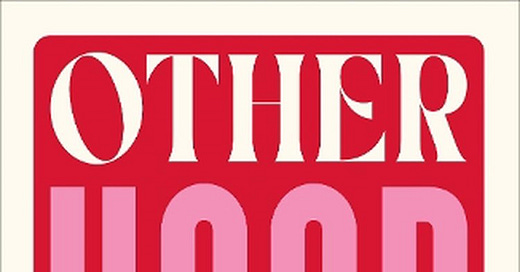Reflecting on Choice, Meaning, and Motherhood
The other day, Mr. Matilda asked me what I was reading, and as I explained the title, I couldn’t help but think about how it reminded me of when I read I Don’t—another book that sparked deep conversations and introspection. This week we take a look at Otherhood – essays on being childless, childfree and child-adjacent, edited by Alie Benge, Lil O’Brien and Kathryn Van Beek. This one, too, challenges societal norms in the most profound way, and for those of us navigating the complicated waters of parenthood, or the decision not to embark on that journey, it might feel all too familiar. Yes, I am a mother—of many, as some might say (three). It’s funny how society reacts, isn’t it? The horrified faces I got when I shared that I was pregnant with my third child told me everything I needed to know: three is “too many” in their eyes. But what about no children? Is that not enough?
That’s exactly what this essay collection is about. And I can imagine it may be a hard book to read for some, especially if you’re someone who has struggled with fertility, baby loss, or uncertainty about whether or not to have children. This isn’t a book that will work for everyone, but I do believe it’s a book everyone should read—just be mindful of when the right time might be for you, especially if these are difficult topics.
Like I Don’t, this essay collection touches on an important subject that we should be discussing more often. I’ve always been, and always will be, pro-choice. One of the most liberating choices women have is the choice to not have children, and I think this book opens up that dialogue in such a powerful way. However, this is not just a collection of carefree essays celebrating child-free living. It’s far more nuanced than that. The editors have done an excellent job curating a wide range of perspectives, from women who couldn’t have children, to those who aren’t sure if they want them, to those who are absolutely certain they don’t. Each essay is insightful and unique, offering a window into experiences that are often overlooked or misunderstood.
This book made me think deeply about my own life and the choices I’ve made. And I couldn’t help but be moved by a particular passage that stayed with me from Linda Rooney’s essay:
"I was asked recently what gives meaning to my life. I talked about my husband, my writing, and how I have been able to help others also on this path. But ultimately, my answer was that the most meaningful thing in my life is simply my life itself—living it, enjoying it, feeling gratitude for it. Shouldn’t that be what gives every life meaning?"
Isn’t that a question we all should ask ourselves? So much of the conversation around motherhood and the choice to have children centres on the idea that meaning must come from something—or someone—outside of ourselves. Yet here is a simple truth: sometimes, meaning comes from the act of living itself. This collection, through all its varied voices, reminds us of that. It’s a deeply personal reminder that every life, no matter how it’s lived or what choices have been made, has its own inherent value and significance.
As I finished the book, I found myself reflecting on the subtle but powerful shift in society’s expectations about motherhood and the way we define fulfilment. This book offers a rare opportunity to step back from those expectations and ask ourselves what really matters. Whether you are a parent, thinking about becoming one, or never want to be, this collection invites you to reconsider where meaning comes from—and, most importantly, that it is always a choice, a deeply personal and individual choice, to define it for ourselves.
So while this may not be an easy read for everyone, and while it might raise some uncomfortable questions, it’s the kind of book that invites reflection. It’s a powerful reminder that living a meaningful life is about so much more than the expectations others place on us. Sometimes, it’s simply about living, and isn’t that the most important thing?
For anyone interested in a thought-provoking exploration of choice, identity, and what it means to live a meaningful life—this book is for you. Just make sure you pick the right time to read it. It’s a conversation that we should all be having, and this collection opens the door in a way that feels both necessary and profound. Add this one to your list, because life is too short to read bad books.
P.S This is an NZ book – please buy this one if you can.



